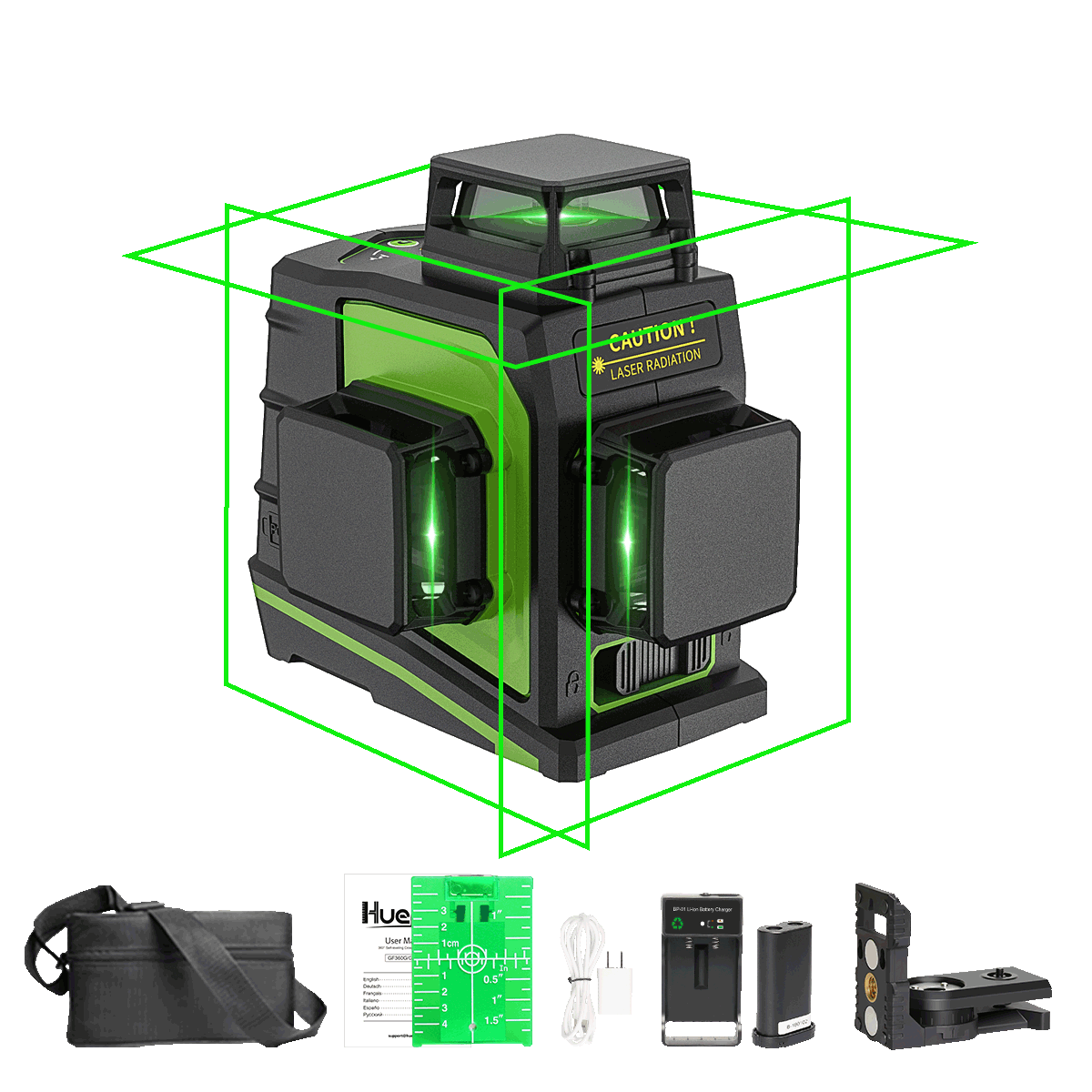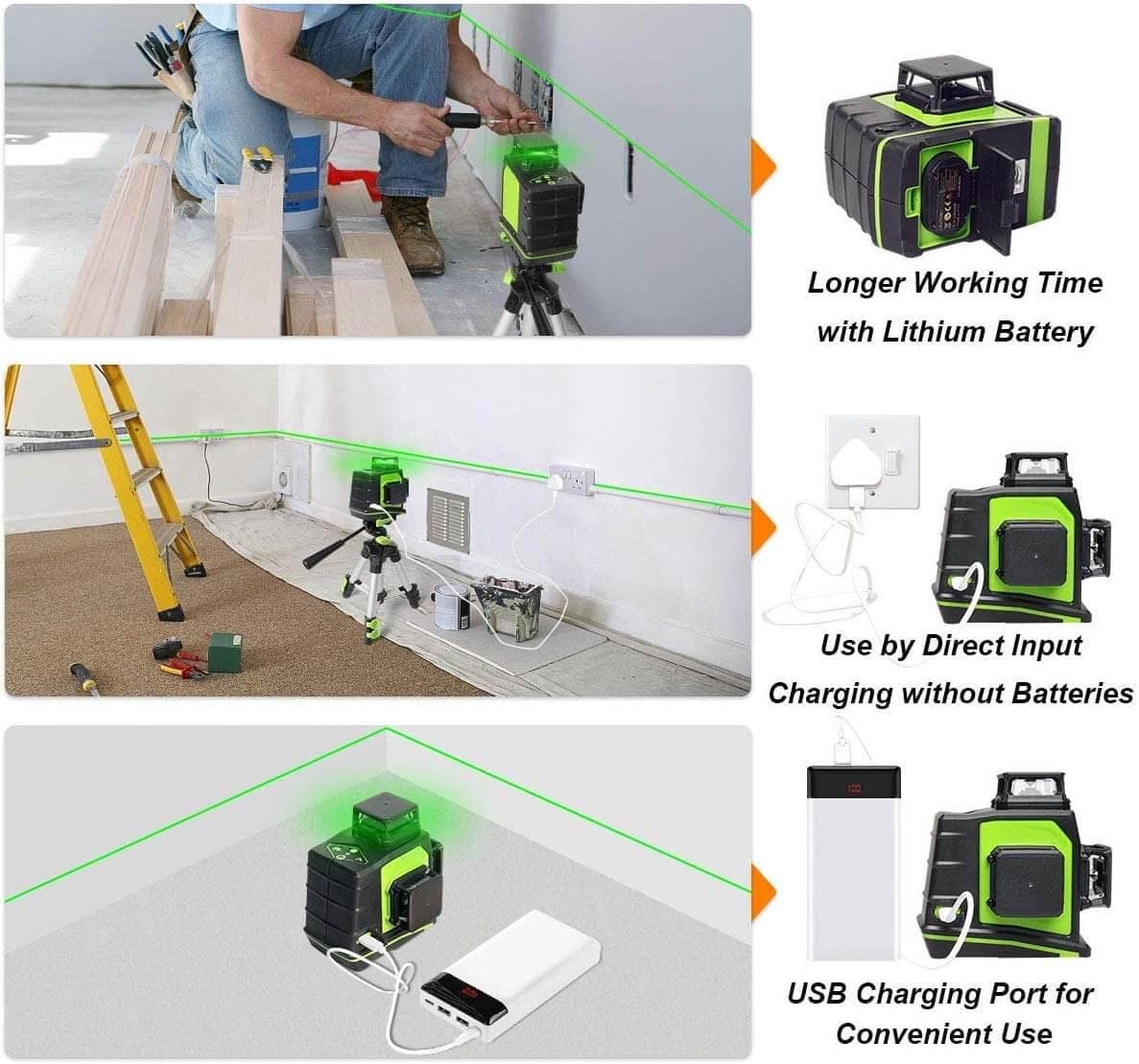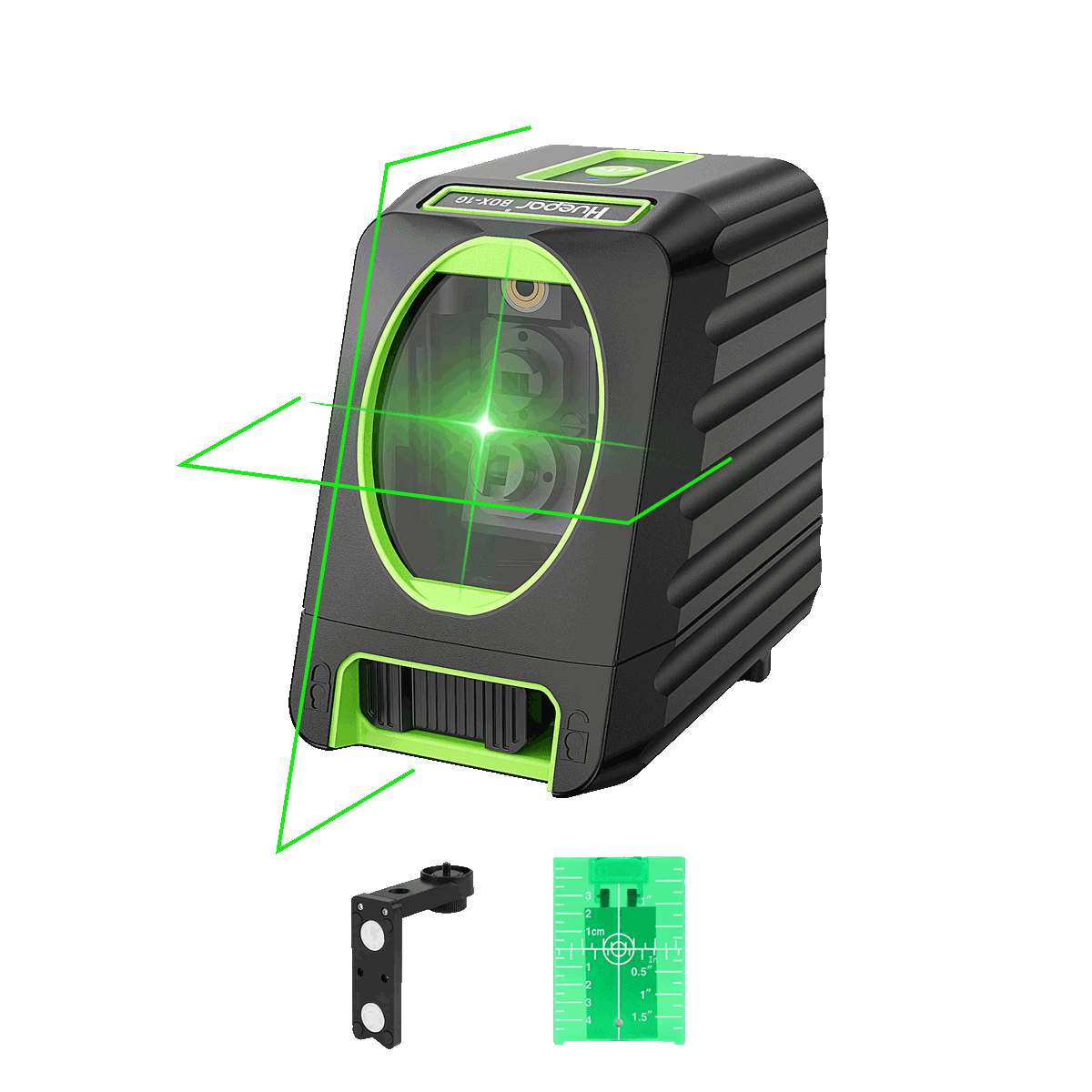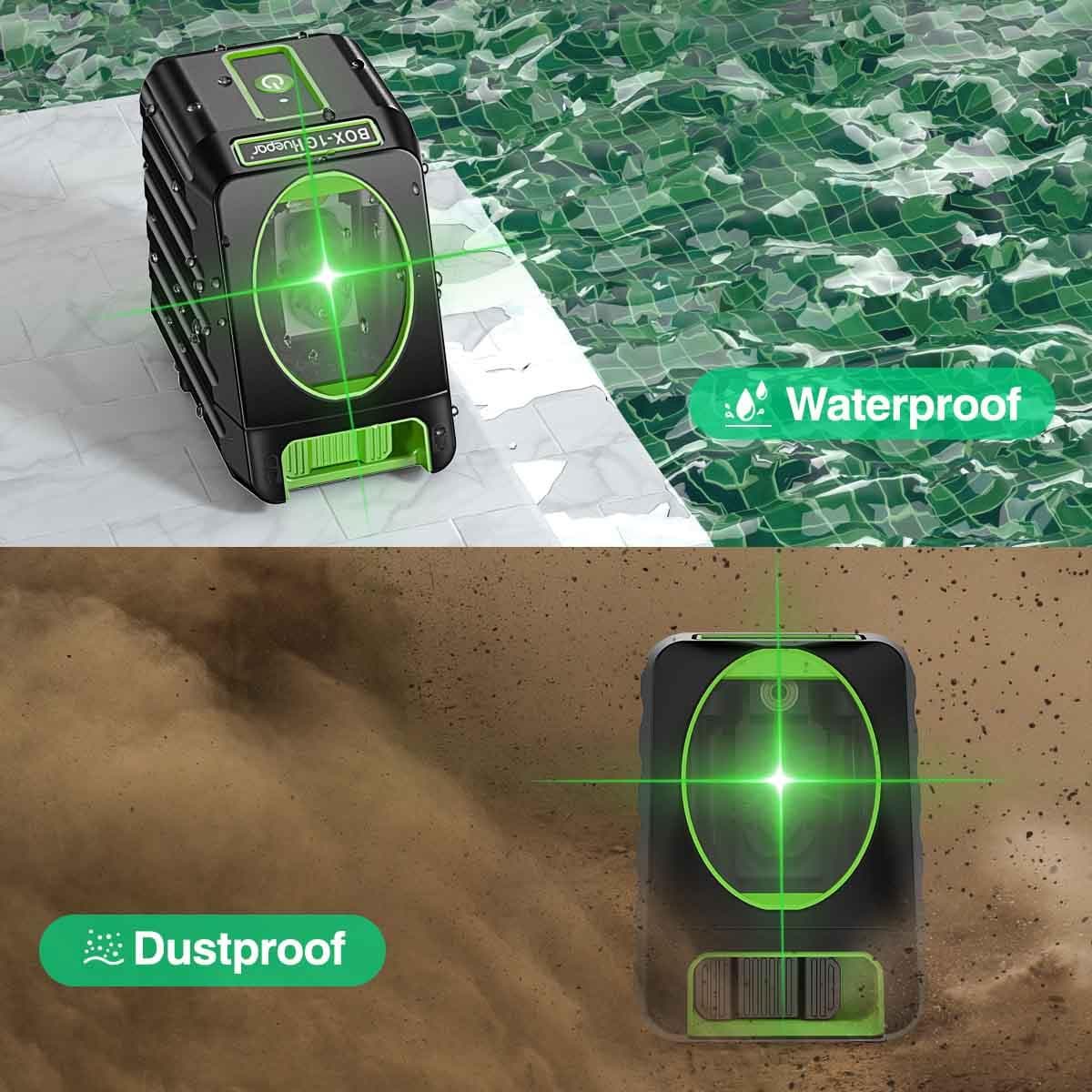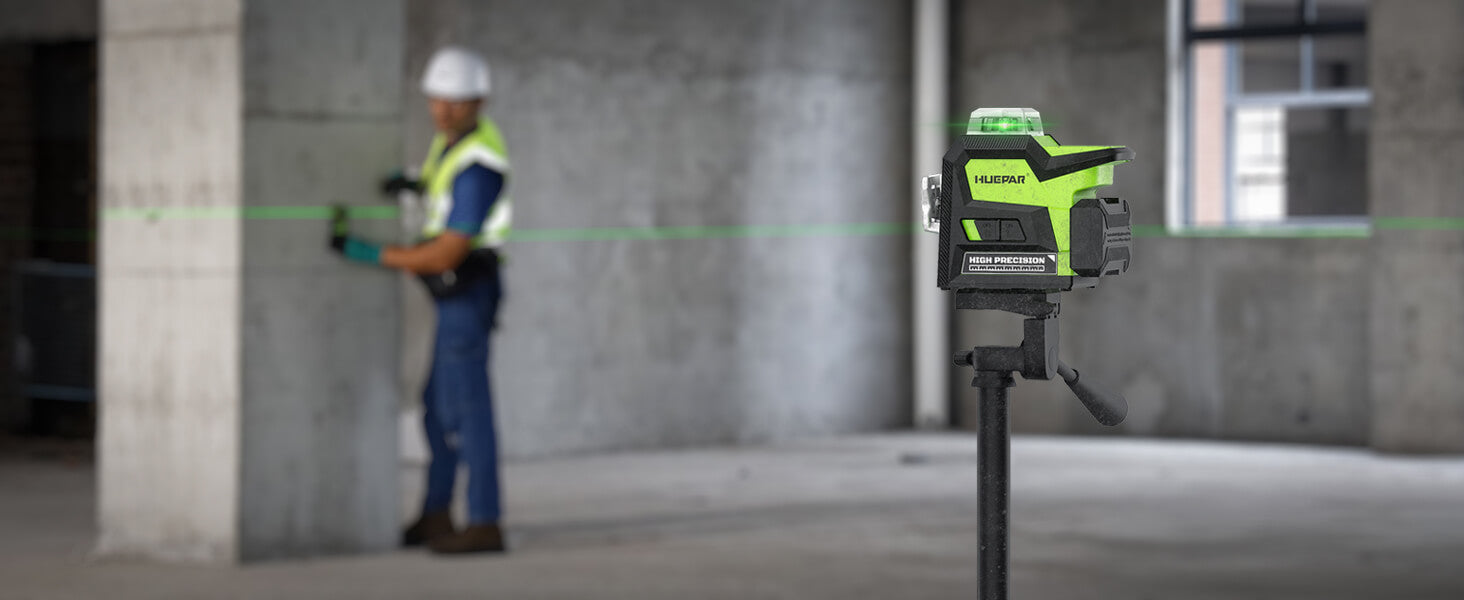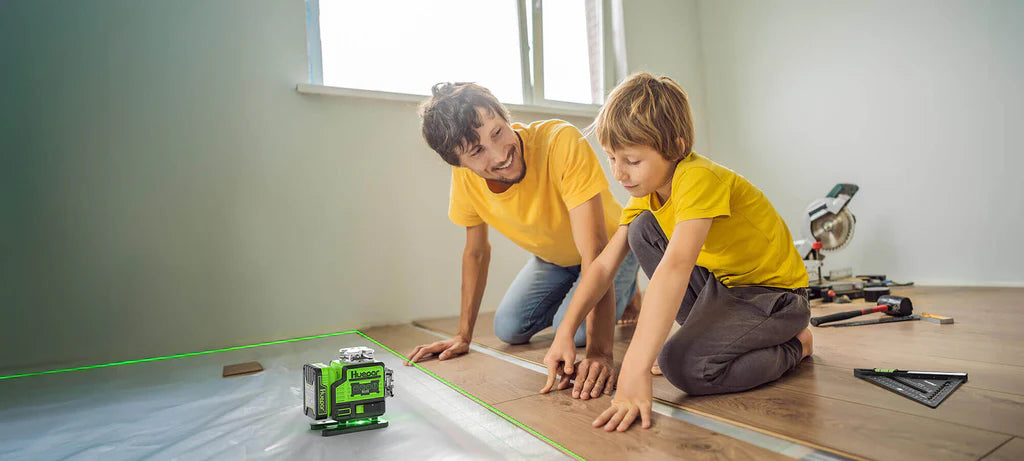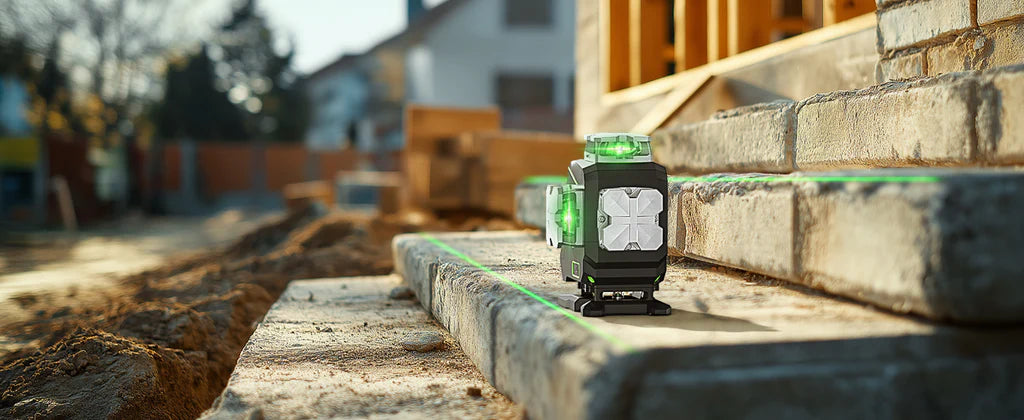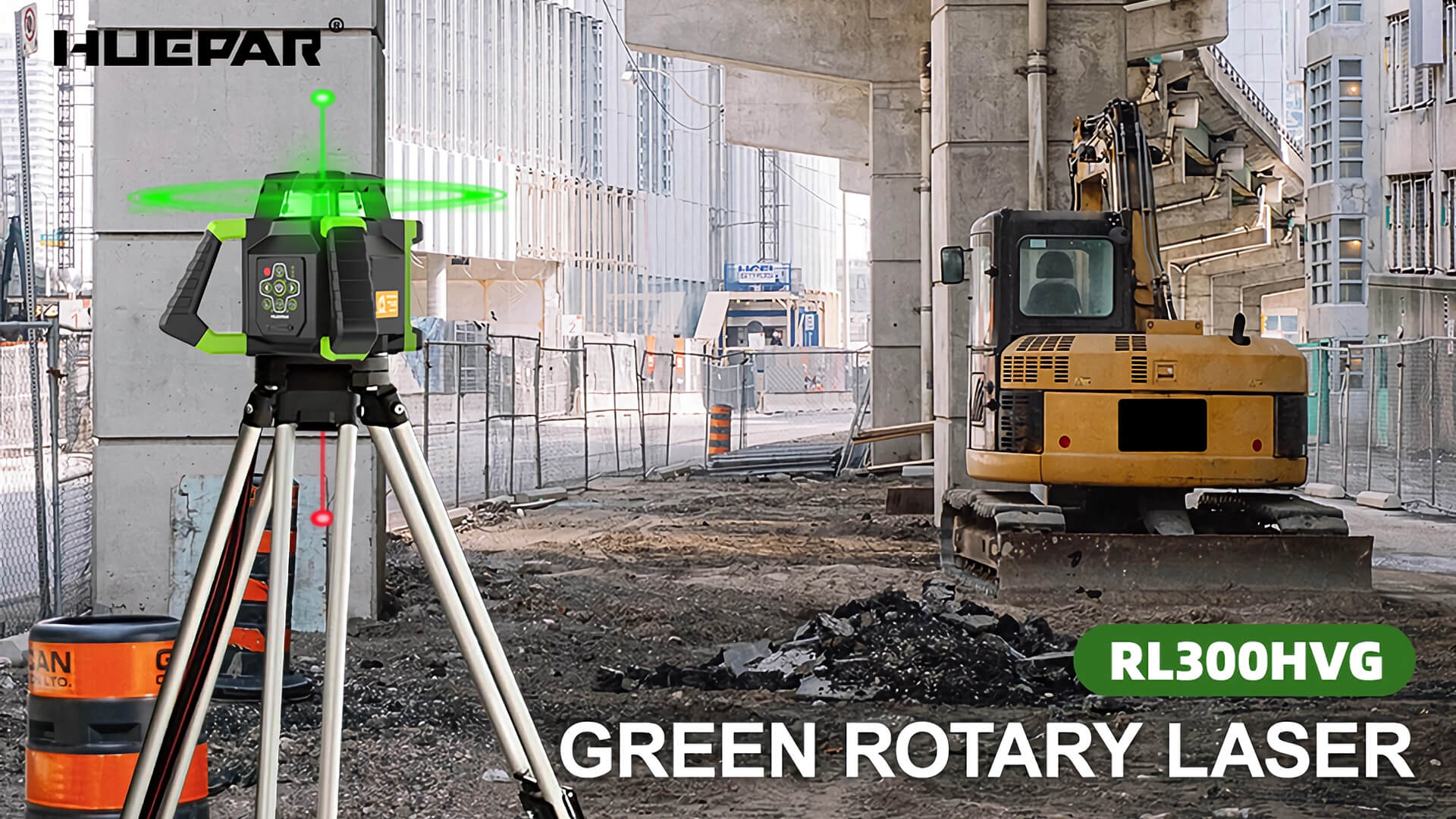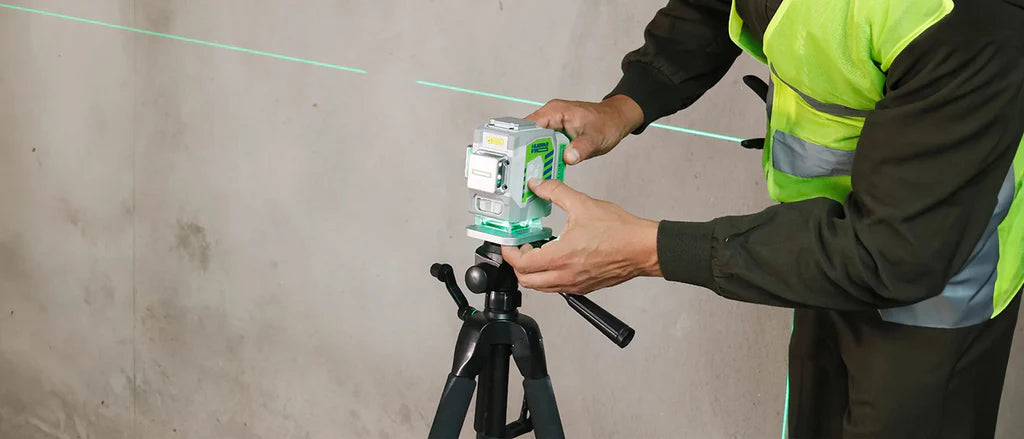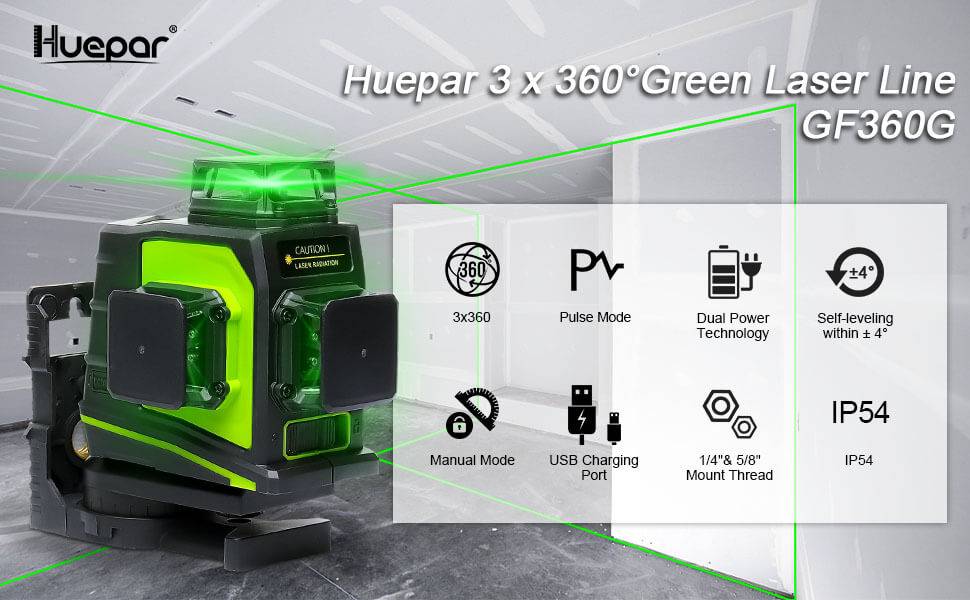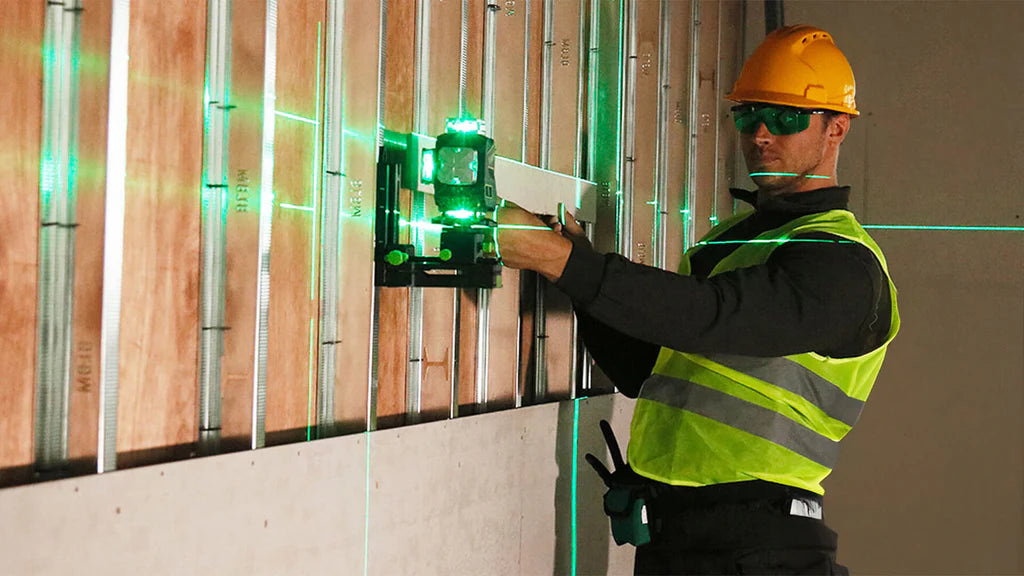
How to Find the Perfect Laser Level for Your Project?
When looking to install hardwood floors, install new cabinets, or do any number of other home improvement projects, it’s important to use quality tools that help you get the job done correctly the first time around. One tool that can make all the difference when it comes to knowing when your project is level and straight is the laser level. In this guide, we’ll teach you everything you need to know about using laser levels in both indoor and outdoor applications so you can find one that’s perfect for your next project!

Types of Laser Level
There are a number of different types of laser levels on the market, each with its own pros and cons. For most indoor applications, it’s important to consider two things: what surface is being aligned against what other surface? What level of accuracy is required?
Depending on these factors, there are three main options: ceiling-mounted laser levels (for aligning one wall against another), floor-mounted laser levels (for aligning floors and ceilings) and rotary laser levels (the most common type; rotary lasers have 360-degree alignment capability). Indoor or outdoor, before you start shopping for a new level, make sure you understand which features best meet your needs.
Tips For Using A Laser Level
Before you buy a laser level, make sure it’s compatible with your project. Some are made only for indoor use, others can only be used on flooring or not at all outdoors. The key is finding one that offers versatility so you can use it whenever and wherever you need. Here are a few tips to help you find just what you’re looking for As mentioned above, look into what type of surfaces each laser level works on (i.e., hardwood floors versus carpet) before committing to buying anything.
Once you figure out which area(s) of your home or office needs leveling work done (you may be surprised), compare floor wall laser levels and building laser levels in terms of ease-of-use, price point, durability and more. And if needed—don’t hesitate to reach out to manufacturers for their recommendations; they will have insights about their own products as well as competitive options—often providing more information than you can find anywhere else! Having trouble deciding between different levels?
Choosing The Right Laser Level
When you’re trying to find a laser level, it’s hard not to get lost in all of your options. Floor and wall laser levels are designed specifically for indoor use and can provide 360-degree horizontal and 180-degree vertical lines. They work great for interior projects like hanging pictures, laying flooring, and even making sure walls are square! On that note, building laser levels are what you want if you plan on using your device outdoors.
A good rule of thumb is that anything outside needs waterproofing - so keep that in mind when shopping around. If you’re doing some serious DIY on your home or just want something simple and easy-to-use, then I would highly recommend a floor wall laser level. But, if you’re putting up an addition or renovating an office building, then be sure to invest in a higher-end construction laser level; they tend to be more accurate and offer multiple features. Regardless of which type fits best with your project (there are also rotating lasers), make sure you have enough wattage and batteries: over time these devices do require replacement parts and both add up quickly.
Features To Look For When Buying A Laser Level
Accuracy – When selecting a laser level, you want something that can get a high degree of accuracy in your measurements. One option is to go with a self-leveling laser, which uses an internal gyroscope and accelerometer to keep it from veering off target. Another option is to go with an external levelling bubble; look for lasers that offer an external levelling bubble or two as well as self-leveling functionality.
Precision – You want precision when working with lasers, especially if you’re measuring spaces or setting down lines inside buildings. Look for lasers that offer +/- 1/4′′ accuracy in laser line measurement (or +/- 1/8′′ outside) and are accurate down to 1/16th of an inch when installing metal studs.
Versatility – Not all levels are made equal. While there are some models available, they aren’t built to match all scenarios you might encounter in construction. Look for something that offers both horizontal and vertical lines so you don’t have to buy different units depending on what job needs doing.
Portability – Many laser levels on offer come with cases or work stands specifically designed for ease of transport; these options help make them easy to move around when out on site, saving time during jobs or setup time before starting work each day.
Waterproofing - If you'll be using your laser level outdoors, waterproof models will help extend their life considerably by making them more durable against rain damage and other exterior elements like dust and dirt.
Applications of a laser level
Now that you know what laser levels are and how they work, it’s time to think about how you can use them. It might seem like a laser level is only good for leveling floors and walls, but with a little creativity, you can use one of these tools in any room of your house or on almost any outdoor project. Whether you’re hanging shelves, setting up a pond pump or even making sure your new deck is perfectly straight before stain-coating it—laser levels are incredibly handy tools.
When shopping around for a laser level, look at products that have more than one application. A model that has an indoor application (like hanging artwork) will be useful in more rooms than one designed specifically for outdoor projects.
The uses of a laser level are nearly limitless. Construction projects can make excellent use of laser levels, since they’re perfect for lining up walls and setting holes in concrete. Home improvement projects are another great application; if you want perfectly square pictures, you’ll need a laser level. There are also professional applications – carpenters, plumbers and others can benefit from using one of these tools as well.
No matter what your project is, there’s an appropriate tool out there; just be sure to do your research before choosing which one is right for you! Whether it’s a standard model or an advanced tool with additional features and accessories, it should be easy enough to find exactly what you need out there. If not, there are plenty of online resources at your disposal that can point you in the right direction. For example, websites like ours have reviews written by experienced professionals that go into detail about each product we cover; these detailed reviews can help steer you towards the best laser level for your needs. You could even write some helpful tips on how to choose a laser level!
Safety Tips
The laser level is a very useful device that allows you to construct perfectly level surfaces in even hard-to-reach places. The devices are used in a variety of settings, including on building sites and at home, but as with any tool or machine there are several safety precautions you should follow when using them.
The first thing to note is that laser levels use powerful lasers so always wear protective eyewear when operating one. This will ensure you don’t suffer from eye damage caused by exposure to infrared light emitted by the device. Also, keep these devices out of reach of children and make sure you read all instructions carefully before using one.
Finally, if your project involves working at height then only trained professionals should be involved in the setup process. It’s also worth checking local laws regarding laser level use; some areas may have restrictions regarding their use or prohibit them completely in certain locations. For example, they may be banned near airports because of concerns about interference with aircraft navigation systems.


